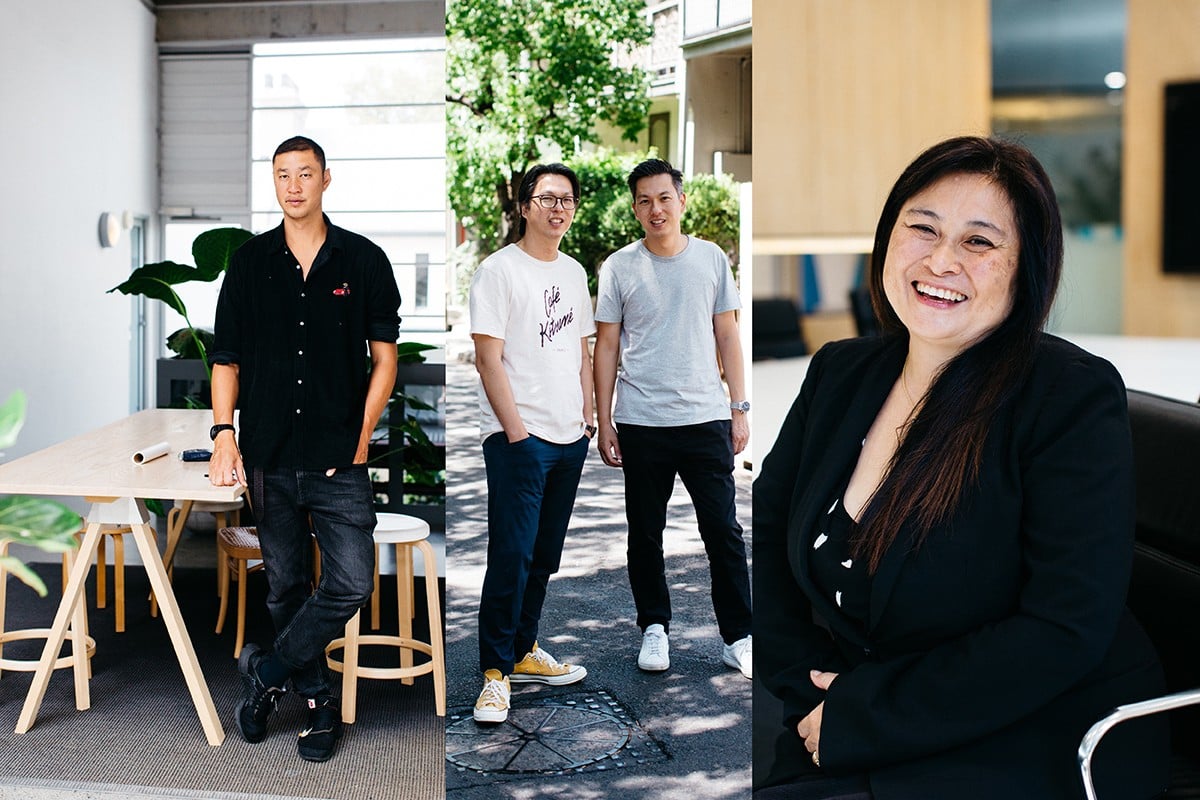
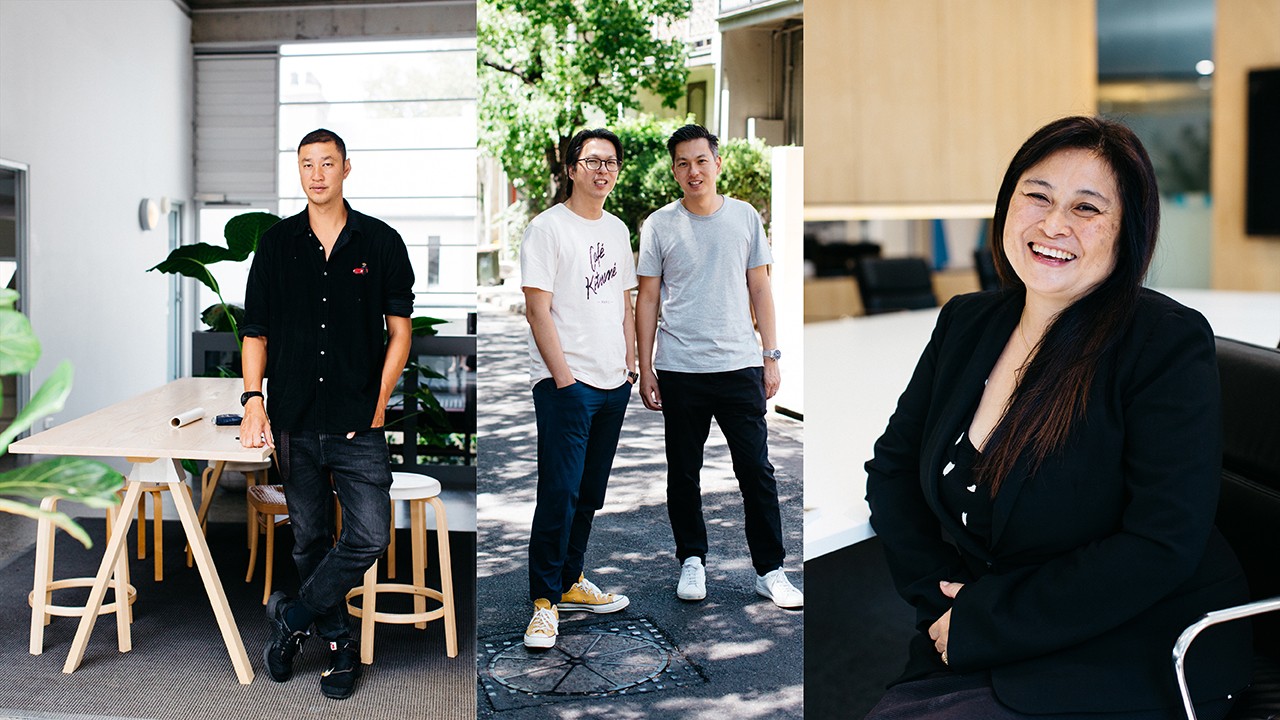
- Up to 1.2 million people in Australia are proud to have Chinese ancestry – and happy to easily make return visits to maintain close ties
The history of Chinese migration to Australia dates back two centuries.
Hong Kong was the point of departure for thousands of Chinese, determined to set sail in pursuit of a new life on Australian soil. Some worked as shepherds from the very earliest days of the colony, but most arrived in the 1850s to work in Victoria’s gold fields.
Journeys that in the past took family members months by boat, now take only 9 hours by plane thanks to increasing number of direct flights. Also Sydney has become one of the most popular destinations for Hong Kong-born migrants.
Up to 1.2 million people with Chinese ancestry call Australia home and we talked to four modern Australians of Hong Kong Chinese descent who live in Sydney, and discovered invisible threads linking these four distinctive Sydney dwellers to their ancestral home.
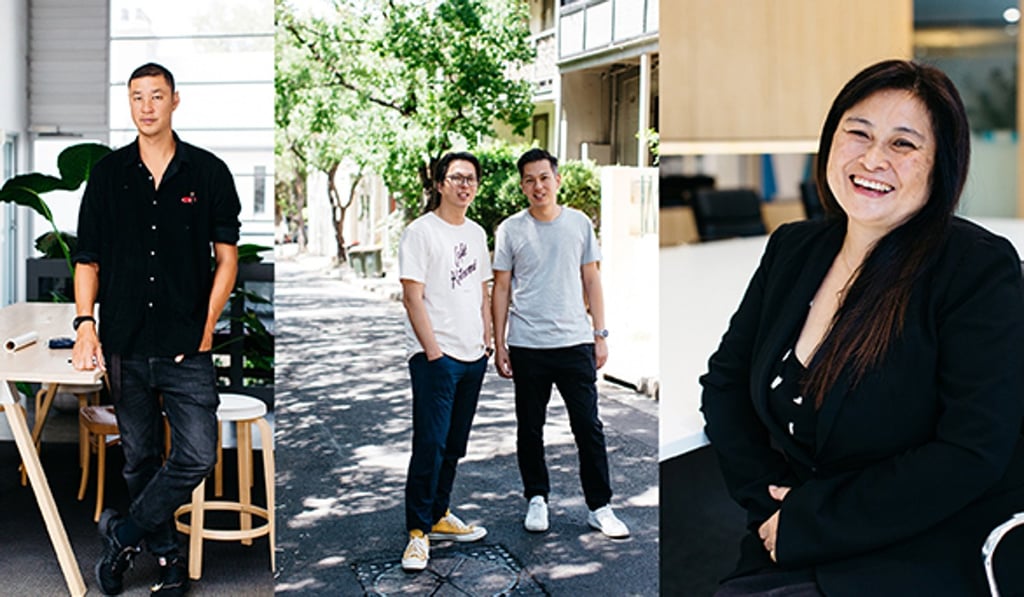
Twins savour many ‘happy returns’
Fashion retailers Brian and Vincent Wu are keen to ensure that their young children understand their roots.
The Hong Kong-born twins live in Sydney with their families. “We visit Hong Kong at least once a year with our families,” Brian says. “There are lots of fun parts of the culture that really appeal to our young children - the night markets, shops and the food, in addition to seeing their cousins and family.”
The Wu brothers moved to Sydney to attend high school after a stint in Auckland when their father decided to quit his finance job to run a prawn farm. “Dad wanted us to be in a bigger city with more opportunity,” Vincent says.
They settled in Pymble, a leafy suburb 30-minute travel from Sydney’s central business district. Brian says: “Everyone had big backyards and we played so much sport: tennis, soccer, basketball – and we swam a lot.”
Vincent says: “We’d ride bikes and skateboards all the time, things you couldn’t do as often if you were growing up in an apartment in Hong Kong.”
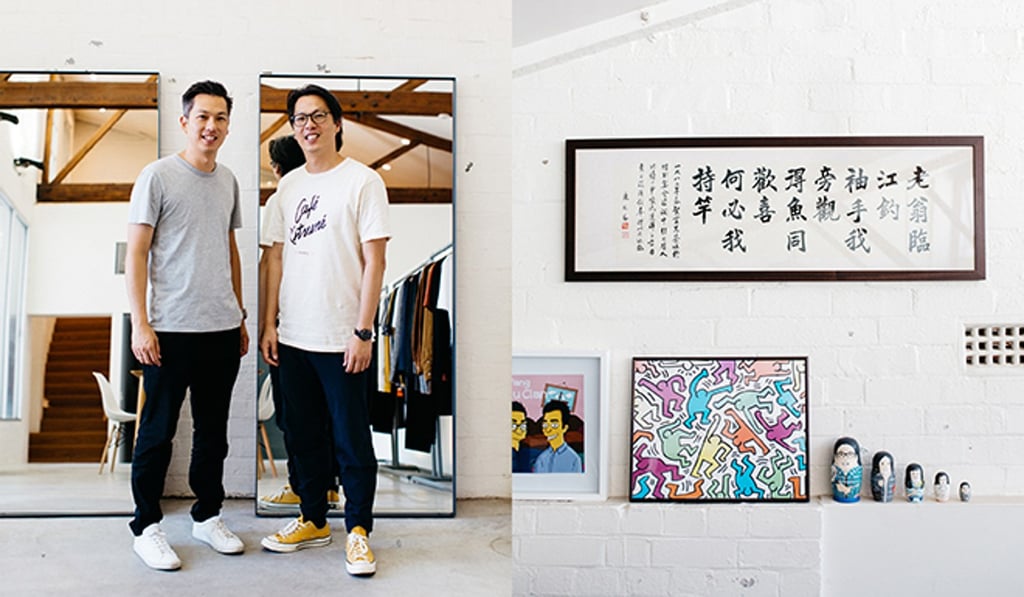
The brothers decided to move into fashion retail 16 years ago when they opened their first Incu store in Sydney.
The business now encompasses an in-house label, Incu Collection, an online store, eight Incu shops across Australia and the Australian storefronts for brands ACP, Saturdays NYC and Rag & Bone, amounting to 15 retail outlets.
Despite their busy itinerary “we travel to Paris twice a year to buy for the business, so we always stop in Hong Kong”, Vincent says.
The pair visit their parents, who moved back, and their grandparents. “Our mum was very much part of the Chinese community in Sydney,” he says. “She hosted mahjong and karaoke parties and everyone would bring food.
“We miss the home cooking and the entertainment in the lounge room. All of that went with her when she moved back to Hong Kong.”
Heritage inspires designer
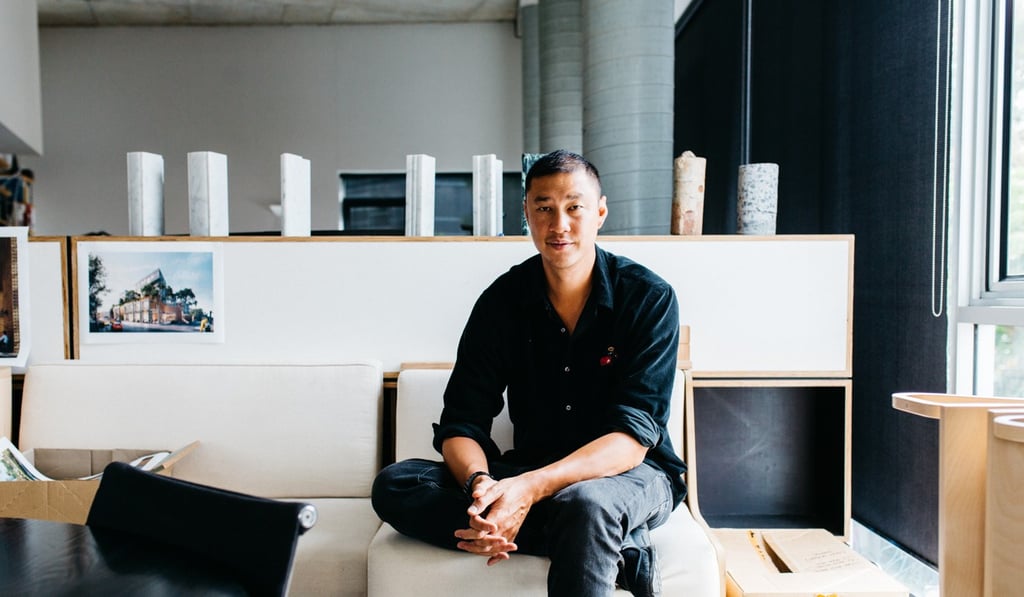
Architect Kelvin Ho has designed all 15 of the Wu brothers’ retail stores. Ho, also of Hong Kong heritage, was born in suburban Sydney.
“I had a very ‘Australian’ childhood,” he says. “We didn’t have a lot of close family in Australia, except my grandmother. My parents were so busy in those early years, establishing a life for us.”
Ho’s father started his career in the Hong Kong Navy. In 1969 he settled in Sydney, where he studied mechanical engineering and completed an MBA.
It’s important to me that my children have a sense of connection to their heritage.
Ho recalls his grandmother speaking Cantonese to him as a young child, but it wasn’t until making his first visit to Hong Kong, at the age of eight, that he began to understand how different his upbringing was to that of his parents.
“I was growing up in a country where it was normal to have a backyard and a pool, where there is distance between yourself and your neighbour,” Ho says. “In Hong Kong, several generations of my family were living in the same apartment.”
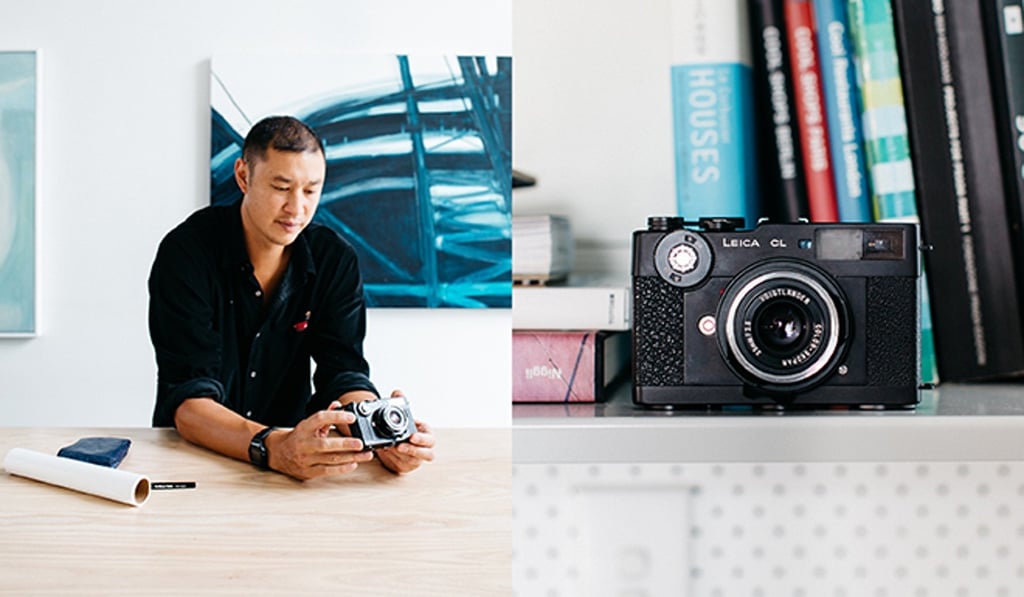
The density of Hong Kong’s living spaces was not the only big impression left on him. “What overwhelmed me was the warmth, the intergenerational exchange and the harmony between them,” he says.
Ho cites family visits to Hong Kong restaurants and their interiors as an inspiration for his work. “Because of the importance of family, restaurants in Hong Kong are often designed with multigenerational groups in mind - kids, parents, and grandparents all dining together,” says the interior designer, who spends his days working on retail and commercial interiors around the world, including current projects with Caon Studio for Qantas.
“It's a great way to spend time with family and to introduce the kids to dining in Hong Kong, which is a key pastime here.” Ho is keen to pass on this cultural tradition he has had with his father. “My children are growing up in Australia and, although they are only three and six years old, it’s important to me that they have a sense of connection to their heritage.”
The key difference between now and his father’s time is that journeys today by air make their travel easier and cosier.
Family ties with Australia’s Gold Rush
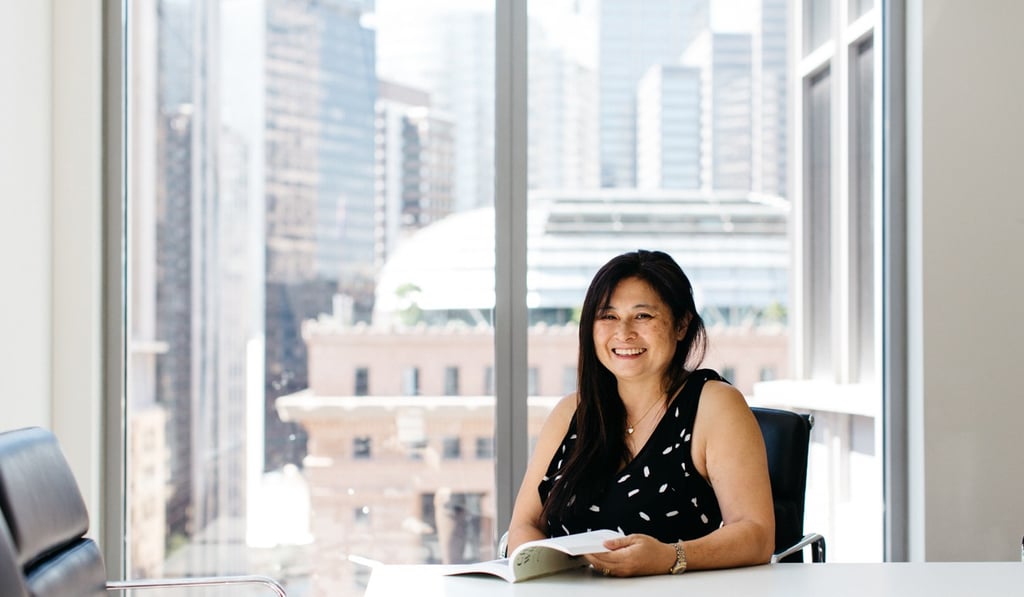
Lawyer and author Alison Choy Flannigan’s family arrived much earlier in Australia than the Wu and Ho families. “Both sides arrived during the Gold Rush in the 19th century,” the fourth-generation Australian says.
Last year Choy Flannigan published her first book, Chinese Whispers: In Search of Ivy, and she is now working on the second, about her family’s movement between Australia and Hong Kong.
It shows the positive impact an immigrant family can make on a community.
For the past 18 years, Choy Flannigan has been researching her family’s story. “Many Chinese families are reticent to talk about their journey,” she says. “I started researching by myself because I wanted answers.”
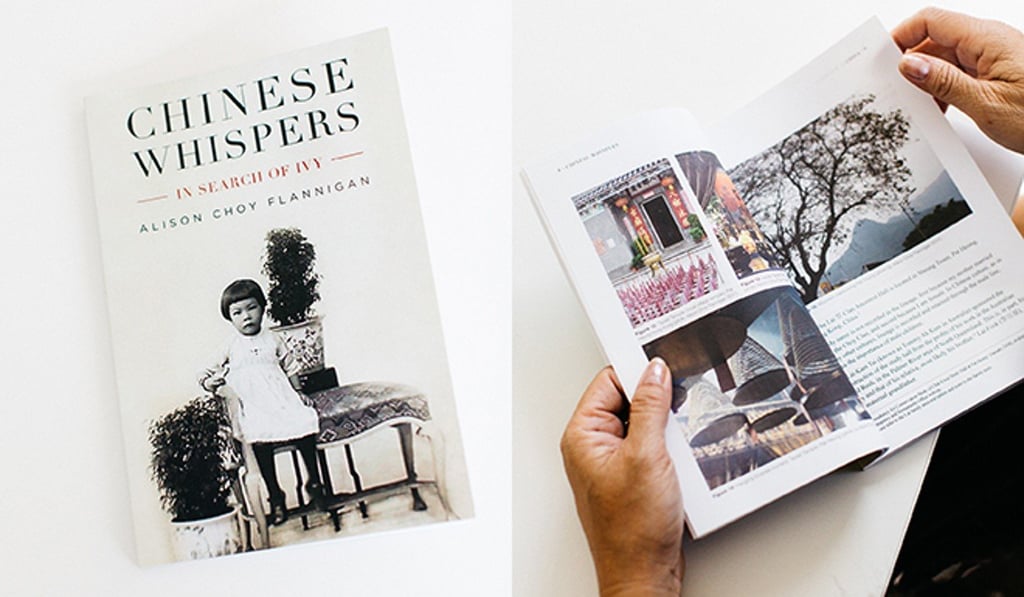
By day, Choy Flannigan is an accomplished lawyer and a partner at Hall and Wilcox in Sydney. “Writing the book really took me outside my square as a lawyer,” she says. It’s a journey that took her to Hong Kong and to Pat Heung, in the New Territories, where she found family she didn’t know she had. “I’d been researching via documents, but by visiting Hong Kong I found the ‘human’ stories,” she says.
Her research took her across the Torres Strait – situated between Australia and the New Guinea – to the remote Thursday Island, where she also found descendants. “My mum was born in Cooktown, a tiny town north of Cairns in 1922, but her brother, my uncle Bill, wanted to study medicine, so the family moved back to Hong Kong so he could go to university,” she says. “The book has shown my family where they came from – a story they may never have known otherwise.”
While In Search of Ivy is a story of very early migration, it’s also a story of social impact, Choy Flannigan says. “It shows the positive impact an immigrant family can make on a community.”
Like the Ho and Wu families, Choy Flannigan’s family in Australia is highly accomplished and boasts teachers, lawyers and specialist doctors, some of whom have spent time studying and working in Hong Kong.“It’s important to tell the story of Chinese people in Australia, and to challenge stereotypes,” Choy Flannigan says. “Chinese people are not just here running restaurants in Chinatown. They’ve made a very valuable contribution to Australian society.”
The Wu, Ho and Choy Flannigan families, past and present, are a testament to her thinking.
Editor’s note: Qantas is making every journey to Australia easier. From now until 30 March, flying to the east coast of Australia from Hong Kong could cost less than flying to other cities in Asia. Explore the special rate on their official website.
